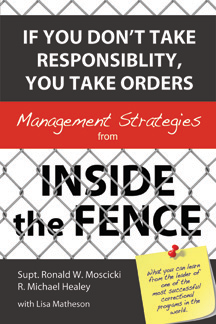What is Emotional Intelligence?

Emotional intelligence (EQ) is the ability to recognize and manage our emotions, engage and connect with others emotions, work collaboratively, build productive teams, respond positively to change and successfully assume leadership roles.
Internal vs. External Competencies
According to the Consortium on Emotional Intelligence, there are a range of EQ competencies which measure our relationship to self (internal) and our relationship to others (external).INTERNAL (Relationship to SELF) |
Self-Awareness Self-Regulation |
EXTERNAL (Relationship to OTHERS) |
Social Awareness Social Skills |
Within each of these categories, there are specific competencies which can be improved.
How To Improve Your EQ
The benefit of emotional intelligence is that, unlike IQ, it is awareness and skill based – both attributes which can be enhanced over time. The process of developing EQ competencies, starts with an increased awareness of one’s own responses – the Self-Awareness component. Once an individual has developed the awareness, and understands how they are responding and why, they can begin to behave differently. Developing the skills for behavioural change follows and is the Self-Regulation aspect of EQ.Many a sage has said that to know others, we must first know ourselves. As the individual increases their capacity to understand, evaluate and manage their own emotions and responses, they subsequently become better equipped to develop the skills for understanding others and the environment. This is the external aspect of EQ and includes the areas of Social Awareness and Social Skills.
The process of enhancing EQ competency levels can occur on a personal level by an individual working on their own; however, the best results come when the individual is also supported by others, whether it’s through a one-on-one feedback process or in a team environment. Whatever the approach taken, the most critical factor in successfully enhancing emotional intelligence is the understanding of the EQ model and how emotions impact behaviours. By focused observation of our behaviours, we come to understand what drives different responses in specific situations, and become equipped to make conscious proactive choices to respond differently. It’s a process that takes time – however, if the individual is clearly committed to continuous self-improvement, a new perspective will emerge that makes life more enjoyable and the results much more rewarding!
SELF-AWARENESS
Emotional Awareness – Recognizing one’s emotions and their effects. People with this competence:• Are able to recognize when they are experiencing an emotional response to a situation.
• Know which emotions they are feeling and why.
• Realize the links between their feelings and what they think, do, and say.
• Recognize how their feelings affect their performance.
• Have a guiding awareness of their values and goals.
Accurate Self-Assessment – Knowing one’s strengths and limits. People with this competence are:
• Aware of their strengths and weaknesses.
• Reflective, learning from experience.
• Open to candid feedback, new perspectives , continuous learning, and self-development.
• Able to show a sense of humor and perspective about themselves.
Self-Confidence – Sureness about one’s self-worth and capabilities. People with this competence:
• Present themselves with self-assurance; have "presence".
• Can voice views that are unpopular and go out on a limb for what is right.
• Are decisive, able to make sound decisions despite uncertainties and pressures.
SELF-REGULATION
Self-Control – Managing disruptive emotions and impulses. People with this competence:• Manage their impulsive feelings and distressing emotions well.
• Stay composed, positive, and unflappable even in trying moments .
• Think clearly and stay focused under pressure.
Trustworthiness – Maintaining standards of honesty and integrity. People with this competence:
• Act ethically and are above reproach.
• Build trust through their reliability and authenticity.
• Admit their own mistakes and confront unethical actions in others.
•Take tough, principled stands even if they are unpopular.
Conscientiousness – Taking responsibility for personal performance. People with this competence:
• Meet commitments and keep promises.
• Hold themselves accountable for meeting their objectives.
• Are organized and careful in their work.
Adaptability – Flexibility in handling change. People with this competence:
• Smoothly handle multiple demands, shifting priorities, and rapid change.
• Adapt their responses and tactics to fit fluid circumstances.
• Are flexible in how they see events.
Innovativeness – Being comfortable with and open to novel ideas and new information. People with this competence:
• Seek out fresh ideas from a wide variety of sources.
• Entertain original solutions to problems.
• Generate new ideas.
• Take fresh perspectives and risks in their thinking.
SOCIAL AWARENESS
Empathy – Sensing others’ feelings and perspective, and taking an active interest in their concerns. People with this competence:• Are attentive to emotional cues and listen well.
• Show sensitivity and understand others’ perspectives.
• Help out based on understanding other people’s needs and feelings.
Service Orientation – Anticipating, recognizing, and meeting customers’ needs. People with this competence:
• Understand customers’ needs and match them to services or products.
• Seek ways to increase customers’ satisfaction and loyalty.
• Gladly offer appropriate assistance.
• Grasp a customer’s perspective, acting as a trusted advisor.
Developing Others – Sensing what others need in order to develop, and bolstering their abilities. People with this competence:
• Acknowledge and reward people’s strengths, accomplishments, and development.
• Offer useful feedback and identify people’s needs for development.
• Mentor, give timely coaching, and offer assignments that challenge and grow a person’s skills.
Leveraging Diversity – Cultivating opportunities through diverse people. People with this competence:
• Respect and relate well to people from varied backgrounds.
• Understand diverse worldviews and are sensitive to group differences.
• See diversity as opportunity, creating an environment where diverse people can thrive
• Challenge bias and intolerance.
Political Awareness – Reading a group’s emotional currents and power relationships. People with this competence:
• Accurately read key power relationships.
• Detect crucial social networks.
• Understand the forces that shape views and actions of clients, customers, or competitors.
• Accurately read situations and organizational and external realities.
SOCIAL SKILLS (SOCIAL REGULATION)
Influence – Wielding effective tactics for persuasion. People with this competence:• Are skilled at persuasion.
• Fine-tune presentations to appeal to the listener.
• Use complex strategies like indirect influence to build consensus and support.
• Orchestrate dramatic events to effectively make a point.
Communication – Sending clear and convincing messages. People with this competence:
• Are effective in give-and-take, registering emotional cues in attuning their message.
• Deal with difficult issues straightforwardly.
• Listen well, seek mutual understanding, and welcome sharing of information fully.
• Foster open communication and stay receptive to bad news as well as good.
Leadership – Inspiring and guiding groups and people. People with this competence:
• Articulate and arouse enthusiasm for a shared vision and mission.
• Step forward to lead as needed, regardless of position.
• Guide the performance of others while holding them accountable.
• Lead by example.
Change Catalyst – Initiating or managing change. People with this competence:
• Recognize the need for change and remove barriers.
• Challenge the status quo to acknowledge the need for change.
• Champion the change and enlist others in its pursuit.
• Model the change expected of others.
Conflict Management - Negotiating and resolving disagreements. People with this competence:
• Handle difficult people and tense situations with diplomacy and tact.
• Spot potential conflict, bring disagreements into the open, and help de-escalate.
• Encourage debate and open discussion.
• Orchestrate win-win solutions.
Building Bonds – Nurturing instrumental relationships. People with this competence:
• Cultivate and maintain extensive informal networks.
• Seek out relationships that are mutually beneficial.
• Build rapport and keep others in the loop.
• Make and maintain personal friendships among work associates.
Collaboration and Cooperation – Working with others toward shared goals. People with this competence:
• Balance a focus on task with attention to relationships.
• Collaborate, sharing plans, information, and resources.
• Promote a friendly, cooperative climate.
• Spot and nurture opportunities for collaboration.
Team Capabilities – Creating group synergy in pursuing collective goals. People with this competence:
• Model team qualities like respect, helpfulness, and cooperation.
• Draw all members into active and enthusiastic participation.
• Build team identity, esprit de corps, and commitment.
• Protect the group and its reputation; shared credit.
SOURCES: This generic competence framework distills findings from: MOSAIC competencies for professional and administrative occupations (U.S. Office of Personnel Management); Spencer and Spencer, Competence at Work; and top performance and leadership competence studies published in Richard H. Rosier (ed.), The Competency Model Handbook, Volumes One and Two (Bosto : Linkage, 1994 and 1995), especially those from Cigna, Sprint, American Express, Sandoz Pharmaceuticals; Wisconsin Power and Light; and Blue Cross and Blue Shield of Maryland. Much of the material that follows comes from Working with Emotional Intelligence by Daniel Goleman (Bantam, 1998). The Consortium for Research on Emotional Intelligence in Organizations EI Framework ( www.eiconsortium.org )


